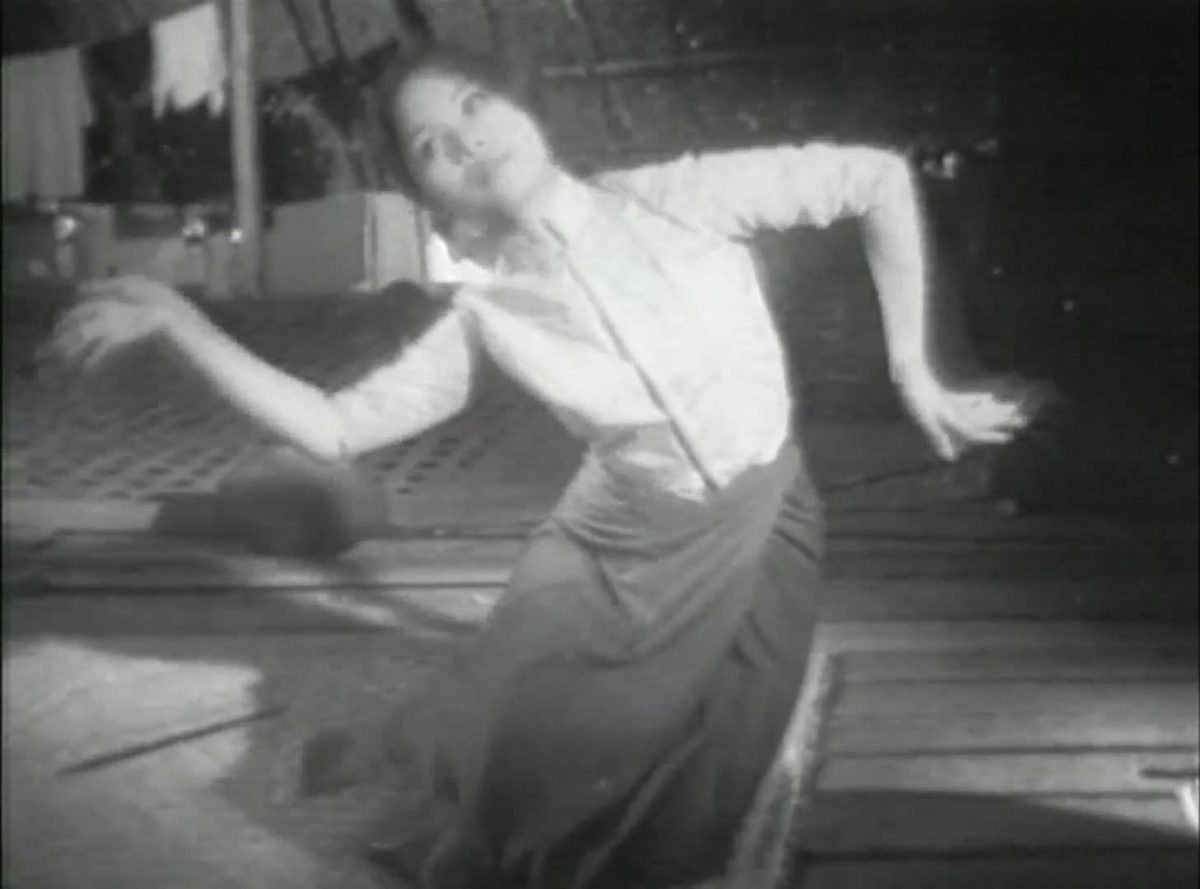Tender Are The Feet

Ché Phawa Daw Nu Nu
Maung Wunna
Myanmar – 1972

Screenplay: Min Shin, based on a novel by Aung Lin
Cinematography: Maung Soe
Production: Pan Wai Wai Film Production
Language: Burmese
Duration: 106 min
Color: Black and White
Synopsis: Sein Lin is a drummer in a traditional Burmese dance theatre ensemble in Rangoon, and he is very passionate about Burmese culture. He falls in love with the beautiful dancer Khin San, but she aspires to a career as a film actress and leaves the theatre. Sein Lin presents her with a small token to remember him by, a figurine symbolizing traditional theatre. He only asks that she return the gift if she truly decides never to come back to the traditional arts. Khin San basks in the glamourous life of a film actress, and after deciding to marry producer Hla Tun, she returns the figurine to heart-broken Sein Lin. Before long, however, Khin San realizes that Hla Tun has been keeping secrets that might change the answer she gave Sein Lin.
Notes:
Born 1947 in Yangon in Maung Wunna began working in film at an early age for his novelist and filmmaker father, Thar Du. In 1970 he earned a BA in philosophy from Yangon Arts and Science University. Having already worked as a sound engineer and film editor, his first film as a director was Katipa phanat see shwe htee hsaung (Wearing Velvet Slippers under a Golden Umbrella) was released in 1971, winning the National Award for Best Direction. Alongside his work as screenwriter and director, Maung Wunna published articles on film, short stories and novels.
Wunna was 24 when he made this shimmering melodrama, in which a proud, aggressively serious musician and a dancer of great ambition and talent fall in and out of touch—and love—after she leaves their classical theater troupe to make it as a movie star. Certain passages of the film, with their syncopated editing rhythms and jarring disruptions from shot to shot, play like the work of a young director building a new cinematic vocabulary from scratch. But it’s the care Wunna takes to find a cinematic vocabulary well-matched to that of the Burmese theater—many of the best scenes are extended, thrillingly shot performances—that yields its deep formal coherence. Tender are the Feet is the first restoration in what is hoped will be an ongoing initiative by the Yangon Film School to restore the sparse surviving classics of Burmese cinema, most of which are currently languishing in unsuitable storage facilities. Restored with the support of Goethe-Institut, the film screened at Wathann Film Fest in 2012 and had its international premiere at the 64th Berlin Film Festival in 2014. Perhaps it’s fitting that many viewers’ first exposure to the endangered national cinema of Myanmar should be a film about the need for cultural and artistic preservation—not to mention one of such great intelligence, grace, and visual beauty.
Notes based on Nelson, Max. “Restoration Row.” Film Comment 50, no. 6 (November 2014): 11.


